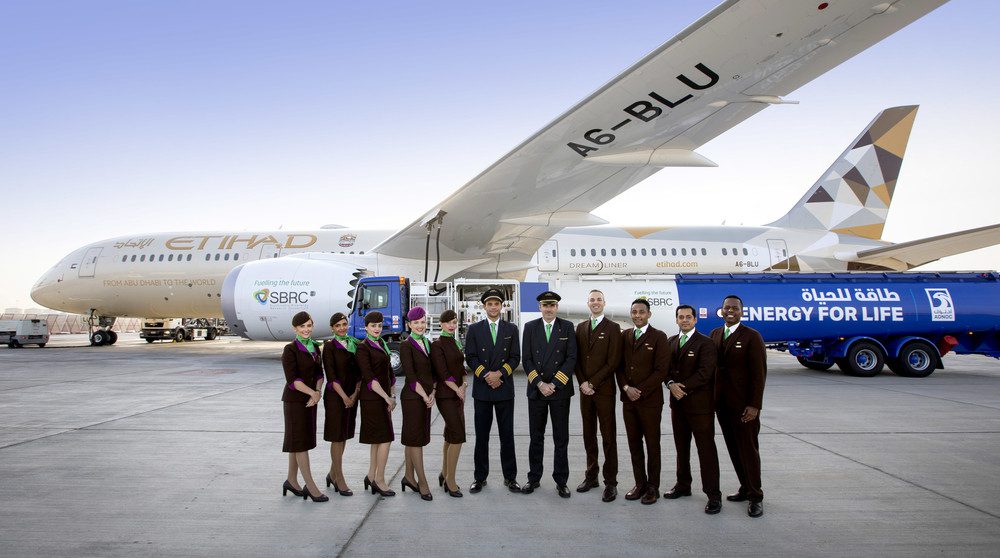Etihad Airways has made history by operating the first commercial flight to be powered by locally-produced biofuel derived from plants grown in saltwater.
The Boeing 787 Dreamliner flew from Abu Dhabi to Amsterdam powered, in part, by sustainable fuel made from the oil in Salicornia plants, grown on a desert farm in Masdar City in Abu Dhabi.
The farm is part of a world first desert ecosystem, designed to produce fuel and food in saltwater. How cool is that?
The project was led by The Sustainable Bioenergy Research Consortium, which form part of Khalifa University of Science and Technology.
The flight from Abu Dhabi to Amsterdam marked a major milestone in the development of a clean, alternative aviation fuel to reduce carbon emissions.
The initiative also addresses food security in the UAE through the farming of seafood as a core element in the process.
Group Chief Executive Officer Etihad Aviation Group Tony Douglas said Etihad was fully committed to the project which demonstrates a successful proof of concept that is local, viable, cost-effective and sustainable.
Executive Vice-President, Khalifa University of Science and Technology Dr Arif Sultan Al Hammadi added that this flight marked the beginning for the use of clean fuel for air travel.
“We believe the use of biofuel for this commercial flight will make a compelling statement that impacts stakeholders in the aviation, energy and transportation sectors.”
Executive Vice-President, Khalifa University of Science and Technology Dr Arif Sultan Al Hammadi.
About 160,000 passenger flights have flown on a blend of sustainable and traditional jet fuel since the first biofuels were certified for commercial use in 2011.
Sustainable aviation fuel may be the answer to the aviation industry meeting its goals to cap the growth of carbon emissions by 2020 and cut levels to half of what they were in 2005 by 2050.
- READ: World’s first biofuel Dreamliner flight takes off from LAX-MEL
- READ: Virgin Atlantic uses biofuel to power a commercial flight








